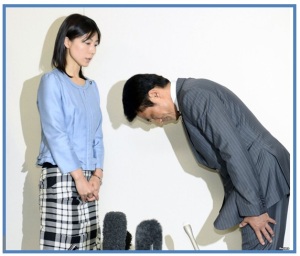Chris Game
I’ve had the good fortune to spend the past week in Tokyo, as Japan commemorates the 50th anniversary of arguably the most geo-politically transformative Olympic Games, in the city that underwent a scarcely credible urban transformation in order to stage them.
The figures still stagger: 10,000 new 4 to 7-storey office and residential buildings, 100 kms of new super-highways and 40 kms of subway lines, a new airport-to-city monorail, plus the instantly world-famous 210 kph shinkansen bullet train – and all in barely four years.
Then there were the Games themselves: the first live- and colour-telecast Opening Ceremony, hosted (not presided over) by the vanquished but unprosecuted Emperor Hirohito; the exclusion of South Africa; and, courtesy of Seiko, the first electronic automated timing systems giving results down to 1/100th of a second accuracy.
It was my second year away from my Essex home at the University of Manchester, and I recall these things pretty clearly. But I’d virtually forgotten a favourite bit of contemporary trivia: that the signage discouraging Japanese men’s habit of relieving themselves openly in the streets was not, as you might put it, penal, but communal – “Let’s refrain from urinating in public”.
Even if we had ‘oop north’ – as I fear my mother at least half-imagined – indulged in such practices, the Mancunian forces of law and order would surely have adopted a more individualistic and punitive approach.
I remember thinking, even with my nil first-hand knowledge of Japan, that those two short opening words surely represented something more fundamental – the distinction between what we’d label today as the Individual-Agency Culture of most western countries and the Collective-Agency Culture of those like Japan, where communities play a more central role in society.
It’s a distinction that’s perhaps most frequently noted in respect of apologising, of which the Japanese do far more than we do, partly because we largely restrict ours to actions for which we are personally to blame. The Japanese are almost compulsive apologisers – if you doubt it, check out Wikipedia’s list of their governments’ more than 50 WWII apology statements – to the extent that they differentiate, enumerate, taxonomise and behaviouralise the numerous ways in which remorse can and should be expressed.
As an ignorant gaijin (foreigner), I can mostly get by with ever-ready, spoken sumimasens – a kind of Category 1 hybrid sorry/excuse me – to cover everything from bumping into littler people on the overcrowded subway to generally behaving like a western wus. I sometimes add what I hope may resemble a Japanese-type shallow bow.
After that, though, apologising becomes more serious: the distinctions more subtle and the bows ever deeper until they become grovels or prostrations. I received, quite unnecessarily, an apparently Category 3 deep bow, head down, from the optometrist salesperson who was unable to repair the arm of my spectacles.
Basil Fawlty would probably essay an ingratiating Category 5 ‘perpetual ojigi’ – deep bow indefinitely repeated until requested to stop – to any hotel inspector he might incidentally have offended. And, if you’re actually caught in the act of doing something seriously obscene and/or offensive, then for you it’s a Category 7 dogeza – which isn’t Japanese for doggy-style, but does entail the penitent assuming a disconcertingly similar posture of self-abasement.
And my point is? Well, while it obviously may be a product of being here in the remorse capital of the world, to me this past week’s UK news headlines seemed to include a disproportionate quota of apology stories.
First, there was Sheffield United footballer and convicted rapist, Ched Evans, being asked to show not just shame, which he had expressed, but also ‘genuine’ contrition and remorse before being allowed to resume his career, even while pursuing an action for a miscarriage of justice.
The pseudonymous ‘Jean Hatchet’ online petition was aptly named. The 150,000+ signatories – nearly nine times United’s average home attendance – called on the club not to reinstate Evans under apparently any circumstances.
They were after lifelong vengeance, rather than apologies, but I did wonder if at least some of them might have settled, had it been available, for a Category 8 doge-fuse – the ultimate apology, with Evans prostrating himself, face down, preferably on the muddiest Bramall Lane pitch available.
Some would happily have seen TV presenter, Judy Finnigan, join him, for failing to grasp that today non-consensual sexual contact, regardless of gender or location, is sexual violence – end of.
OTT, obviously. Still, it did seem surprising that someone with her experience failed to anticipate the widespread offence her remarks would cause, and so maybe a Category 4 ‘long ojigi’ would be appropriate – a deep bow, and no rising until given permission.
I’ve no idea what planet the Russian Tennis Federation President inhabits, but, after describing Venus and Serena as “the Williams Brothers”, if he escaped with a long ojigi, he should consider himself lucky.
Which leaves the unfortunate junior welfare minister, Lord Freud. Being one of those politicians who’ve avoided the messy business of actually contesting elections, he failed to foresee the ruthlessness with which a desperate Labour leader would twist and exploit his unscripted remarks about some employers judging some learning disabled employees as incapable of doing work for which they’d deign to pay the minimum wage.
It sounds like another Judy Finnigan, but the luckless Baron was additionally required to make a Category 2 deep and public bow to David Cameron for drawing attention to the gap in his Government’s otherwise faultless integrated tax and benefits system.
Tokyo, the Olympics, Japanese apologies, Evans, Finnigan, Freud – eclectic but, I concede, not a huge amount of local government. Time, therefore, for my own apologetic explanation of my flimsy pretext. There were two quite prominent Japanese local government apology stories over the summer, both accompanied by video clips. Between them, they were, I felt, sufficiently unusual, insightful, and in one case downright bizarre, to justify sharing with any colleagues who may have missed them.
The first involved two Tokyo city assembly members and the kind of repulsive sexist behaviour which is on regular display in our own House of Commons, but which generates more outcry in the supposedly more male chauvinist culture of Japan.
Speaking in a debate on measures to support child-raising and boost fertility [at current birth and death rates, Japan’s 127 million population is projected to fall to 87 million by 2060], (unmarried) assembly member Ayaka Shiomura was interrupted and visibly upset by cries of “Hurry up and get married” and “Can’t you give birth?”
A Liberal Democratic member, Akihiro Suzuki, eventually confessed to at least the first and at an ensuing press conference bowed deeply and apologized “from the bottom of my heart for inflicting heavy heartache and causing trouble to assembly member fellow lawmaker Ayaka Shiomura, the assembly and the public.”
By this time, any of you who recognize or recall the name Ryutaro Nonomura will know precisely what comes next. Nonomura, a Hyogo prefecture assemblyman, held a long and emotional news conference to answer questions about his alleged misuse of some of his annual ‘policy research’ allowance of ¥6 million (£36,000) – during which he broke down in tears, sobbed uncontrollably, wailed incoherently, and produced a video performance that immediately went viral. I’ve selected two of the many available clips: a longer, sadistic version showing the build-up to, from about 6:45 minutes, the full car crash; and a highlights version showing in English subtitles what he apparently meant to convey.
There are two overriding impressions left by the Nonomura video clips. The first is that he must have been as guilty as hell – which is only partly true. In acknowledgement that assembly members are proper policy and law makers, the political activities allowance – on top of an annual salary of ¥11.6 million (£67,000) – is deliberately broadly defined and correspondingly loosely monitored. Yes, Nonomura clearly did stretch the interpretation of the ‘other activities’ the allowance was intended to cover – more so probably than he admitted at his news conference.
But, unlike some of our local and national politicians found guilty of similar charges, all his dubious trips were undertaken, and, as the prefectural office admitted, they were not in themselves illegal. Had he collected and submitted receipts, he might well have got away with his travel excesses, if not some of the others. As has since been acknowledged, the prefecture’s sloppy bookkeeping also has much to answer for.
The second thing is that, if part of his aim in holding the news conference was to convince the public about his sincerity as a representative and legislator, then he surely succeeded. As the subtitled clip shows, Nonomura REALLY cares – about his prefecture, his people, Japan, its ageing population, and no doubt a great deal else – and I’m not sure you could say as much for some/most of our expenses cheats.
Chris Game is a Visiting Lecturer at INLOGOV interested in the politics of local government; local elections, electoral reform and other electoral behaviour; party politics; political leadership and management; member-officer relations; central-local relations; use of consumer and opinion research in local government; the modernisation agenda and the implementation of executive local government.



